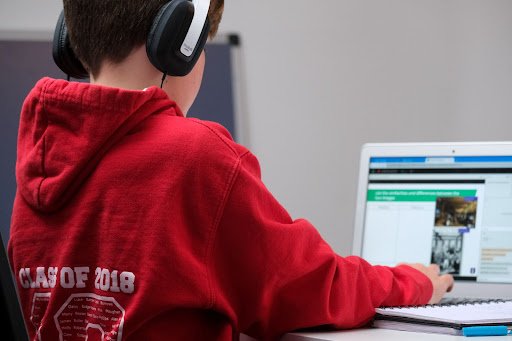As a parent, it's important to stay up-to-date on the latest online safety trends and protect your children from potential dangers they may encounter while using the internet. This blog post will discuss things that every parent should do to keep their kids safe online. Keep reading for helpful tips and advice!
1) Monitor their online activity
Keeping a close eye on your children's online activities is essential for keeping them safe. Make sure to regularly check the websites they visit and their social media accounts to ensure that they are not exposed to any inappropriate content or cyberbullying.
Your children's online activity should also be monitored in a constructive way. Take the time to discuss safe online practices with your children and encourage them to come to you if they ever experience any issues while browsing the web.
2) Set up parental controls
Parental controls can help protect your children from age-inappropriate content and harmful interactions. Most devices and software programs offer some form of parental control feature, so take advantage of these options to customize what your kids can access on the internet.
3) Create strong passwords for their accounts
Passwords are one of the main ways that hackers gain access to personal information, so it's important for parents to ensure that their children are using secure passwords for all their online accounts. Long, complex passwords that contain a combination of numbers, letters, and symbols should be used to help prevent cyberattacks.
4) Educate them on internet safety
It's important for parents to educate their children about the potential risks of using the internet. Teach them about the importance of privacy settings and how to recognize phishing scams, as well as how to stay safe from predators or bullies.
5) Be aware of new technologies and trends
The online world is constantly evolving, so it's essential for parents to stay up-to-date with new technologies and trends that could potentially affect their children's online safety. This includes learning about any new apps or websites your kids may want to use, as well as being aware of any new safety features that are available.
6) Encourage open communication.
Encouraging your children to come to you with any concerns they may have is essential for keeping them safe online. Let them know that it's ok to talk to you about anything they find on the internet, and make sure that they understand that their privacy will be respected.
7) Establish clear rules and guidelines for online behavior
Make sure your kids know what types of activities are acceptable and unacceptable when using the internet. This includes setting limits on how much time they can spend online each day, as well as discussing appropriate language and behavior while interacting with others online.
8) Change your IP address using a VPN
A Virtual Private Network (VPN) is a great tool for safeguarding your children's online activity. By changing your IP address, you can protect your family from malicious websites and cyber criminals looking to track their internet usage. Learn how to change IP address on android to keep your children safe while they are browsing the web.
9) Install anti-virus software on all devices
Anti-virus software can help protect your family from malicious viruses, malware, and other online threats. Make sure to install protective programs on all of your children's devices and update them regularly for maximum protection.
10) Stay involved in their online life
It's important for parents to stay connected with their kids when it comes to their online activities. Encourage them to share any new websites or apps they're using and take the time to discuss potential issues that could arise while using the internet. This will help you ensure that your children are staying safe while they explore the digital world.
9) Use monitoring software
Monitoring software can help you keep an eye on your children's online activities and block any potentially dangerous content or interactions. There are a variety of programs available, so make sure to research the best options for your family before making a decision.
10) Limit Screen time
It's important for children to have some time away from screens. Make sure to set limits on the amount of time your kids can spend online and encourage them to spend their free time engaged in activities that don't involve a computer or phone. This will help ensure that they are using the internet safely and appropriately.
11) Private Friends And Family Photo Sharing
Create a private photo album to share with friends and family. This can be done through online applications like Facebook, Instagram, or Google Photos. Control who has access to the photos by adjusting the privacy settings and make sure that your children understand why it's important to keep their pictures secure.
The internet is an incredible tool, but it also comes with its own set of risks. As a parent, it's important to be proactive in teaching your children how to use the internet safely and responsibly. Make sure that they understand the potential dangers lurking online and equip them with the skills they need to stay protected. With proper education, guidance, and supervision, your kids can enjoy all of the wonderful opportunities provided by technology without having to worry about compromising their safety.



